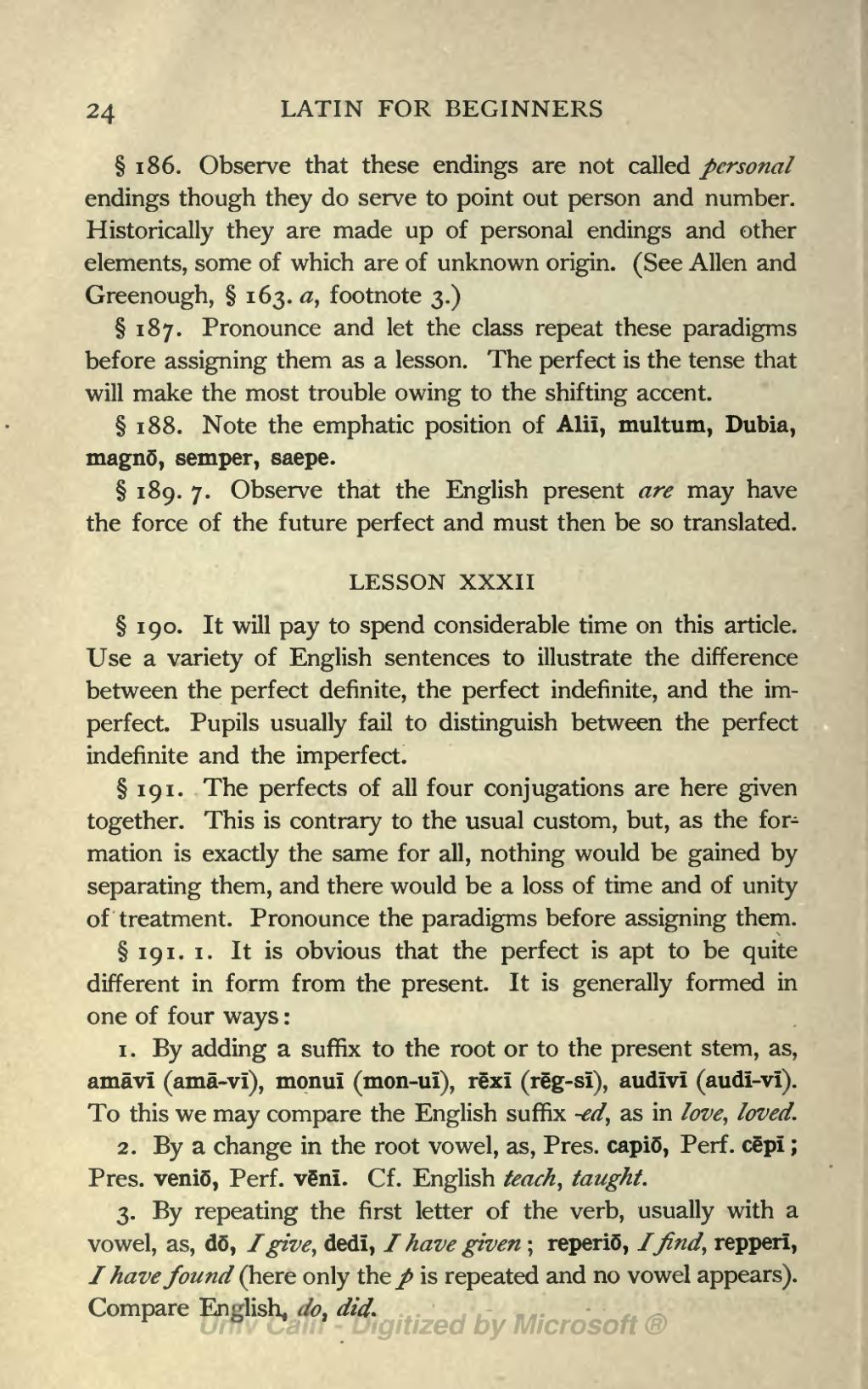§ 186. Observe that these endings are not called personal endings though they do serve to point out person and number. Historically they are made up of personal endings and other elements, some of which are of unknown origin. (See Allen and Greenough, § 163.a, footnote 3.)
§ 187. Pronounce and let the class repeat these paradigms before assigning them as a lesson. The perfect is the tense that will make the most trouble owing to the shifting accent.
§ 188. Note the emphatic position of Aliī, multum, Dubia, magnō, semper, saepe.
§ 189. 7. Observe that the English present are may have the force of the future perfect and must then be so translated.
LESSON XXXII
§ 190. It will pay to spend considerable time on this article. Use a variety of English sentences to illustrate the difference between the perfect definite, the perfect indefinite, and the imperfect. Pupils usually fail to distinguish between the perfect indefinite and the imperfect.
§ 191. The perfects of all four conjugations are here given together. This is contrary to the usual custom, but, as the formation is exactly the same for all, nothing would be gained by separating them, and there would be a loss of time and of unity of treatment. Pronounce the paradigms before assigning them.
§ 191.1. It is obvious that the perfect is apt to be quite different in form from the present. It is generally formed in one of four ways:
1. By adding a suffix to the root or to the present stem, as, amāvī (amā-vī), monuī (mon-uī), rēxī (rēg-sī), audīvī (audī-vī). To this we may compare the English suffix -ed, as in love, loved.
2. By a change in the root vowel, as, Pres. capiō, Perf. cēpī; Pres. veniō, Perf. vēnī. Cf. English teach, taught.
3. By repeating the first letter of the verb, usually with a vowel, as, dō, I give, dedī, I have given; reperiō, I find, repperī, I have found (here only the p is repeated and no vowel appears). Compare English, do, did.
